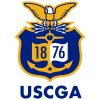Alexander Waid, Ph.D.
Government, Professor
Department of Humanities

Dr. Waid has an A.B. in Spanish Literature and an M.A. and Ph.D. in Romance Languages and Literatures. He has taught at the University of North Carolina at Chapel Hill as well as Carnegie Mellon University. Professor Waid has taught Spanish language at nearly every level and has also taught various literature courses, the History of Spain and an introduction to Political Science and International Relations in Spanish. He has also attended numerous workshops on Oral Proficiency Interviews.
Education
- Ph.D., University of North Carolina at Chapel Hill (1999)
- M.A., University of North Carolina at Chapel Hill (1996)
- A.B., Spanish Literature/Pre-Medical, College of the Holy Cross, Worcester, MA (1994)
Courses Taught
- Spanish I, II, III and IV
- Spanish for False Beginners
- Coast Guard/Military Spanish
- Ciencia Política y Relaciones Internacionales
- Spanish Cinema
- Introduction to Spanish and Spanish American Literature
- Fourth Class Academic Orientation Program
Selected Publications and Presentations
- Feature Editor Summer 2003 Edition of Academic Exchange Quarterly on “Education in a Military Setting”
- Five entries in the Encyclopedia of Ethnic American Literature, “Border Narratives”, “Liminality”, “Willie Perdomo” and “Nuyorican”
- Content developer for CMU’s Online Spanish Program (Elementary and Intermediate levels)
- “Fernando Arrabal’s La primera comunión as the middle and end of a rite de passage,” Summer 2003 Limen
- “Smart Classrooms and Hybrid Courses,” College Teaching and Learning Conference Proceedings and reprinted in The Journal of Teaching and Learning, Summer 2004
- Poem “Dawn,” Letters from the Soul, Fall 2002
- Poem “Raven Night Love,” Divining Beauty, Winter 2001
Conference Presentations
- “Instructor Developed Web Pages and the Teaching of Foreign Languages,” MLA 2004 Convention
- Smart Classrooms and Hybrid Course,s” 2004 College Teaching and Learning Conference
- “Teaching Spanish to Latino’s,” 2003 Hispanic Heritage Luncheon USCGA
- “Fernando Arrabal’s Panic Theater: a fresh perspective from Anthropology,” Fifth Annual Carolina Conference on Languages and Literatures, Chapel Hill 2000
- “Some interesting Geometric parallels between Cortázar’s Fiction and MC Escher’s ‘prints of infinity,'” Fourth Annual Visions Conference, Duquesne University, Pittsburgh, 1999
- “Re-reading Fernando Arrabal’s Panic Theater through the lens of Chaos and Complexity,” Fourth Annual Carolina Conference on Languages and Literatures, Chapel Hill, 1999
- “El Taoismo visto en la obra de Juan Ramón Jiménez,” Third Annual Carolina Conference on Languages and Literatures, Chapel Hill, 1998
- “Sacred Chaos: the Making of a New Theory,” Second Annual Carolina Conference on Languages and Literatures, Chapel Hill, 1997
Honors
- Tanner Award for Undergraduate Teaching (UNC)
- Access Award for Undergraduate Teaching (UNC)
- Students’ Undergraduate Teaching Award (UNC)
- Keynote speaker at the 2nd annual “Celebration of Teaching” at UNC; received grant to implementtechnology in the language-learning classroom at UNC
Professional Memberships
- Modern Language Association (MLA)
- American Council on the Teaching of Foreign Languages (ACTFL)
- American Association of University Professors (AAUP)
